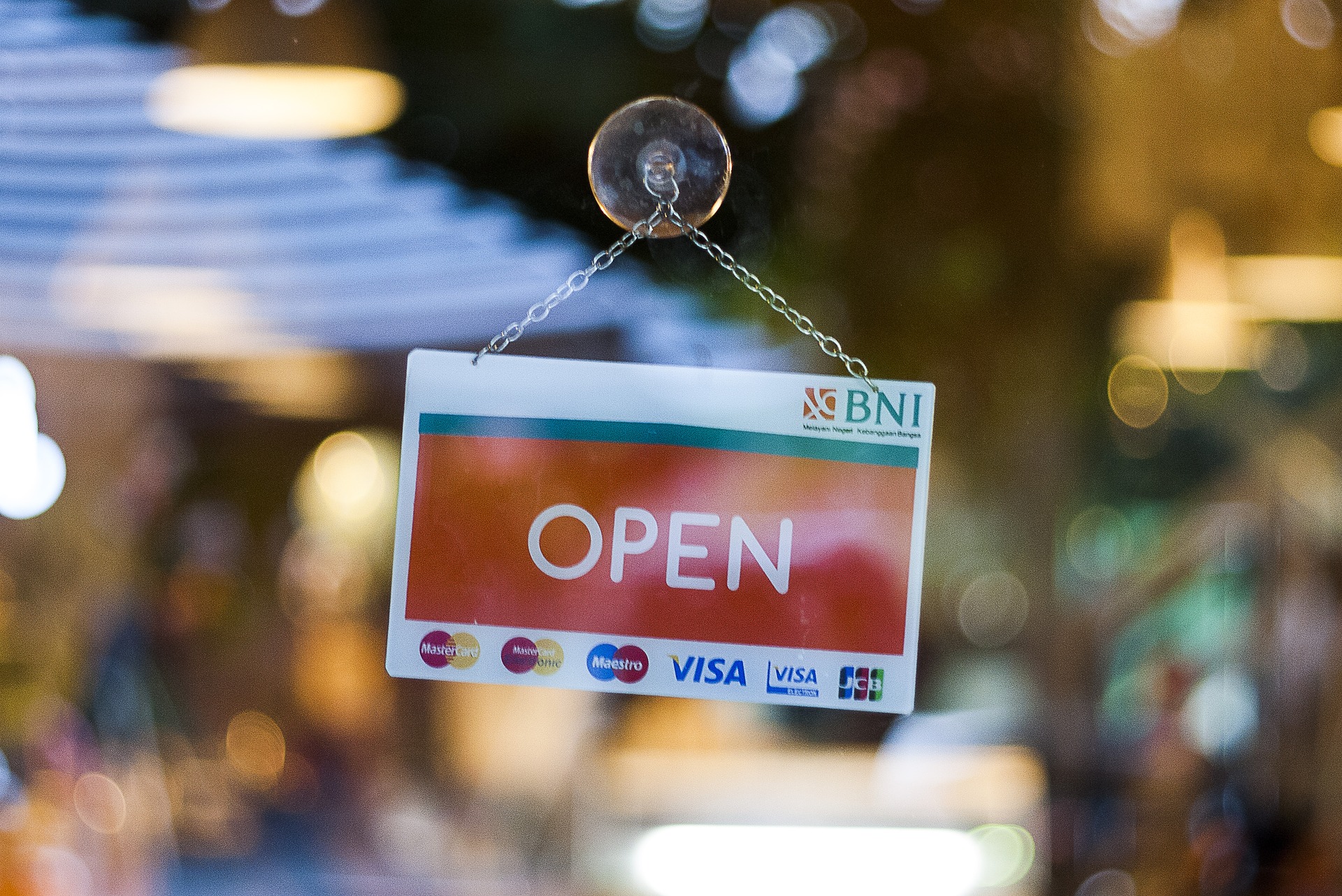Step back and think about the magnitude of what has happened in the last seven weeks. Here’s a short list: a national pandemic and health crisis, widespread business closures, record unemployment, and unprecedented federal and state assistance for businesses, non-profits, individuals and governments. There have been many bumps along the way, but the response and coordination between government and business that has occurred would not have been thought possible before. Every trade group, association, health care organization, government agency and many, many individuals have marshalled their resources for a common cause – to defeat a virus and to restore a sense of security and normality. Altogether, it is overwhelming.
Everyone in the economic development world has worked to play a part in this by communicating information and connecting businesses and people with the resources and programs that have been created. Many businesses in the service industry – anyone with a business model built around the congregation of people at a place or event – have felt the immediate economic and personal impact of the disaster. Other organizations with a business model more easily adapted to working from home and businesses considered essential just kept on going. It seems inevitable that everyone will feel the pain as the debt for all of this assistance comes due and the residual effects of the disruption ripple through the rest of the economy.
The community of Johnston is home to corporate centers, a military base, and many small businesses and sole proprietors. As an organization charged with supporting business growth in the community, the Johnston Economic Development Corporation (JEDCO) has participated in COVID-19 response and recovery efforts. Without claiming any scientific rigor, the opinions of business owners and operators were sought concerning their status and the extent to which the recovery efforts have helped them in the near term. Nearly 60 responses to an electronic survey were received from businesses representative of the community. The largest group was in the category of 2 to 5 employees, but businesses of all sizes responded, ranging from sole proprietors to larger corporations. Here’s what we learned.
About 55% of the respondents said they had either closed due to government proclamation or were adversely affected by the pandemic. Meaning that 45% of the businesses were able to adapt to the changing situation and keep producing.
Of the businesses that reported adverse effects from the pandemic:
- Less than half applied for an SBA disaster assistance loan, and most of those who applied did not know of the disposition of their application at the time of the survey; apparently little near-term benefit.
- Almost 60% applied for the SBA Paycheck protection program, and most of them had been approved in the first round of funding. Some had applications in, but the program ran out of funds before their applications could be processed. The second round of funding may have helped, but their actual status is not yet known.
- A number of businesses reported that they were being helped by their suppliers and other business affiliates with deferred payments for rent or loans. Responses indicated that in most cases the assistance was provided with the expectation that full payment would be made at a later date.
- Two thirds reported that they had applied for assistance through the state programs. The application window was small, resources were limited, and the volume of applications was high. Based on a review of published award recipients, it appears that only two Johnston businesses have received financial assistance through those channels.
- Survey participants were asked how much they were being helped by the various programs and activities. On a range of zero (no help at all) to 100 (my business will survive and thrive), the average score was 34. For businesses reporting that they were adversely affected by the disaster, the average score was 23.


Phil Dunshee, Executive Director for Johnston Economic Development Corp. and Adam Plagge, Economic Development Director for the City of Johnston provided a presentation of Johnston survey results at a recent Des Moines Economic Development Practitioners conference call. Review the presentation here.
Conclusions
Again, making no claim to scientific accuracy, the biggest aid to small businesses appears to have been the Paycheck Protection Program. While not directly addressed in the survey, it also seems clear that the unemployment benefits being provided to employees furloughed or laid off has substantively benefited the Iowa workforce until employers can call people back to work.
Johnston businesses who participated in the survey identified the following areas where help may be needed in the near term and the coming months.
- Financial assistance to help with overhead. Payroll assistance is one thing, but financial resources to help cover rent, utilities and fixed costs were identified
- Personal Protective Equipment (PPE). Some businesses identified this as a need for being able to reopen when authorized
- One-time property tax relief. Most businesses (93% according to Polk County reports) had already paid their property taxes when the pandemic started. Some are looking ahead to the next payment in September and are hoping for some relief at that time
- Getting the economy restarted. Businesses are concerned about health and safety, but they also want to get back to work and start earning income again.
For various reasons participants in the survey expressed concern about the administration of the financial assistance programs at the beginning of the crisis. The time frames were too tight. Many who applied to the state programs did not receive assistance, and there is a perception that some who received assistance received more than needed.
One More Source of Financial Help
The next, and perhaps final round of financial assistance for small businesses in the Johnston area will likely come from a new program coordinated by Polk County and the Greater Des Moines Partnership with some financial support coming from area cities including Johnston and Urbandale. The details are still being worked out, but the general focus of the program will be small grants targeted toward very small businesses. It is hoped that this program will be up and running sometime during the first full week of May. The Johnston City Council has pledged $50,000.00 to the effort, which will be matched by resources from Polk County and private sector contributors. JEDCO has pledged $2,500.00 to the cause as well. Watch for more information to be posted here and on various partner websites very soon.
The Next Phase of Recovery
Think of all these assistance programs as a short-term disability policy. They are providing critical financial support during the initial period of “disability.” It doesn’t last forever and is intended to get you by for a while. Other survival tactics will need to be employed.
So far it looks like getting businesses restarted is the main theme for this next phase even as the pandemic and the search for treatment continues. The time to prepare for or get started with this is now. Trade associations, development organizations and government agencies are already pivoting in that direction. Here are a few examples:

- Reopening Guidance published by the Iowa Department of Public Health – April 27, 2020
- Guidance for Restaurant Reopening published by the Iowa Department of Public Health – April 27, 2020
- Column by Steve Strauss published by USA Today – April 30, 2020
- Getting Back to Work webinar hosted by Nyemaster Goode, P.C. with support from Community Bankers of Iowa – May 4, 2020
- The Return to Work webinar hosted by Oasis – A Paychex Company – May 1, 2020
Business owners and managers, economic developers and policy makers should take advantage of these opportunities as they determine what the appropriate next steps for reopening will be, once allowed.
The Johnston Economic Development Corporation will continue to do everything we can to help our economy recover from the effects of the COVID-19 pandemic. And on one final note, for the past many weeks your elected officials have been working together and meeting weekly via web conference with the private sector members of JEDCO to engage in all of these mitigation and recovery activities. This includes Mayor Dierenfeld, the City Council and staff, Supervisor Robert Brownell, Senator Brad Zaun, and Representative Karin Derry. We express our thanks to them and to all of the members of JEDCO for their commitment to the Johnston community and the northwest Polk County area. Better days are ahead!